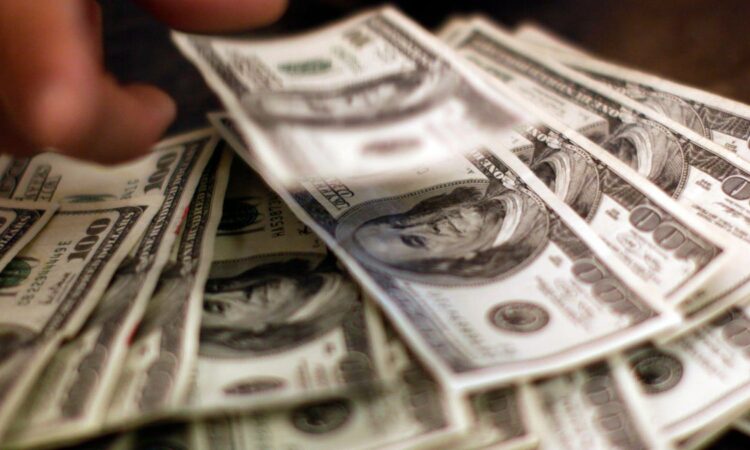
Kenya is facing an acute foreign exchange crunch, with US dollar reserves dropping to their lowest in eight years as its currency keeps plummeting against major global currencies.
According to the Central Bank of Kenya (CBK), the plunge of the Kenyan shilling has been so substantial that it has even breached the regional reserves policy.
The East Africa Community (EAC) forex reserves policy specifies that a member country must have in its coffers at least four months worth of forex reserves in terms of imports cover at any given time. Kenya’s reserves have been below the required levels since Jan. 26.
In its latest weekly bulletin, CBK revealed that the country’s current usable foreign exchange reserves remain at $6.6 billion, down from $6.9 billion reported at the same time in February. This translates to 3.69 months of import cover.
Low shilling value is raising the cost of living
While CBK still holds that available forex reserves are sufficient to meet its statutory requirement, there has been an acute shortage of US dollars which is hitting importers hard and contributing immensely to rampant inflation and high cost of living.
This dip, to a significant extent, is attributed to repayments of loans to bilateral and commercial lenders, as well as CBK’s efforts to check the downward spiral of the shilling against the US dollar. As at Mar. 7, the shilling was trading at 127.80 against the US dollar from KSh 125.6 in mid February. It has lost 27% of its value since February 2020.
Experts opine that the Kenyan currency hasn’t quite recovered from the global economic crisis sparked by the covid-19 pandemic which stifled the country’s key exports thereby cutting its inflows.
These were heightened by other issues thereafter such as continued drought, the Russian invasion of Ukraine which triggered a hike in fuel prices and rising inflation.
The rise of the US dollar black market
The demand for dollars is highest among importers. This is amid the US currency’s hiked exchange rates, and the rise of a black market for the currency. While CBK rate is currently 127.80, the black market rate is as high as 139.
The Kenya Association of Manufacturers (KAM) has stated that many manufacturers and processors are now struggling to do business due to scarcity of dollars in commercial banks which they use to source for raw materials in foreign markets.
“I bought dollars at Sh137 today,” Sam Singar, a Nairobi-based importer told Quartz. “With this trend, I won’t be surprised if the black market price hits 160 by the end of the year.” The number of forex bureau companies in Kenya shot up from 68 in 2021 to 119 currently.
Some listed companies have resorted to trading US dollars among themselves, in turn breaking the CBK law and causing the emergence of parallel exchange rates, resulting in lenders buying and selling well above the printed official CBK rate.
Kenyans are crossing to Tanzania in search of US dollars
Importers blame panic purchase of dollars from banks and forex bureaus to an increased cost of doing business, and have been crossing the border to Tanzanian commercial banks to source for US dollars.
In the meantime, Kenya’s treasury has blamed manufacturers for hoarding dollars.
Kenya has been facing a dollar shortage since March last year, with the current scarcity confirming earlier warnings by US lender JPMorgan, which at the time flagged that it was straining to finalize client transactions in Kenya due to dollar liquidity constraints.
Diaspora remittances are the leading contributor to Kenya’s foreign exchange earnings but have been declining in recent years.
Last November, CBK announced that it expected an inflow of foreign funding from both the World Bank and the International Monetary Fund (IMF) to boost its forex reserves.
But if Kenya has to curb uncontrollable plunge of the its currency, achieve deflation, and ultimately make dollars available, it will have to enforce attractive fiscal and monetary policies like Zambia.





